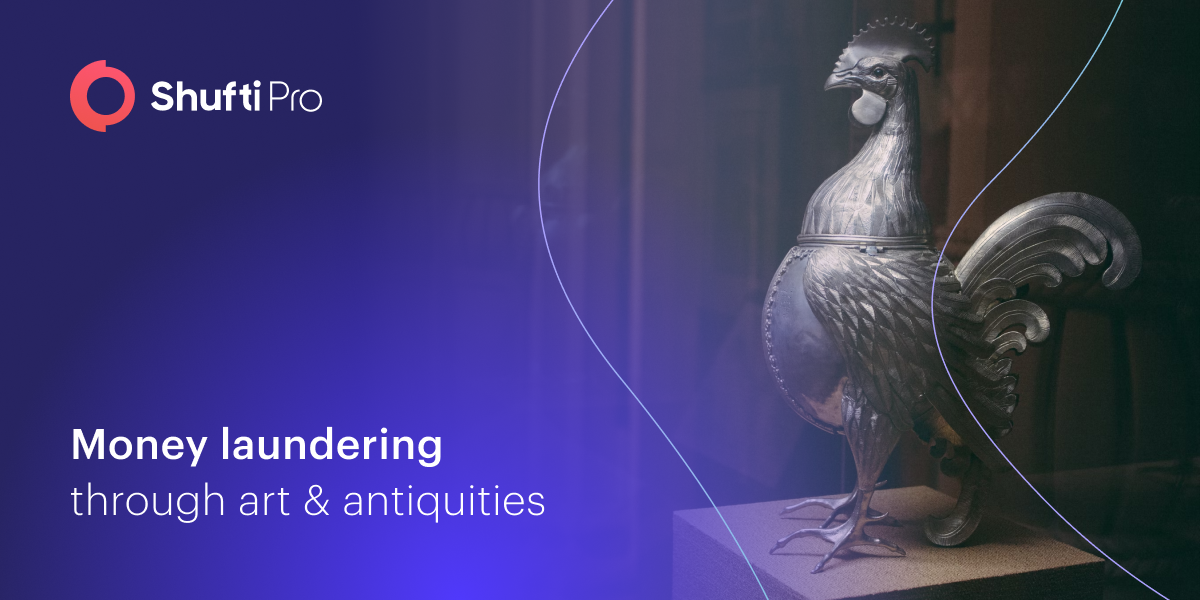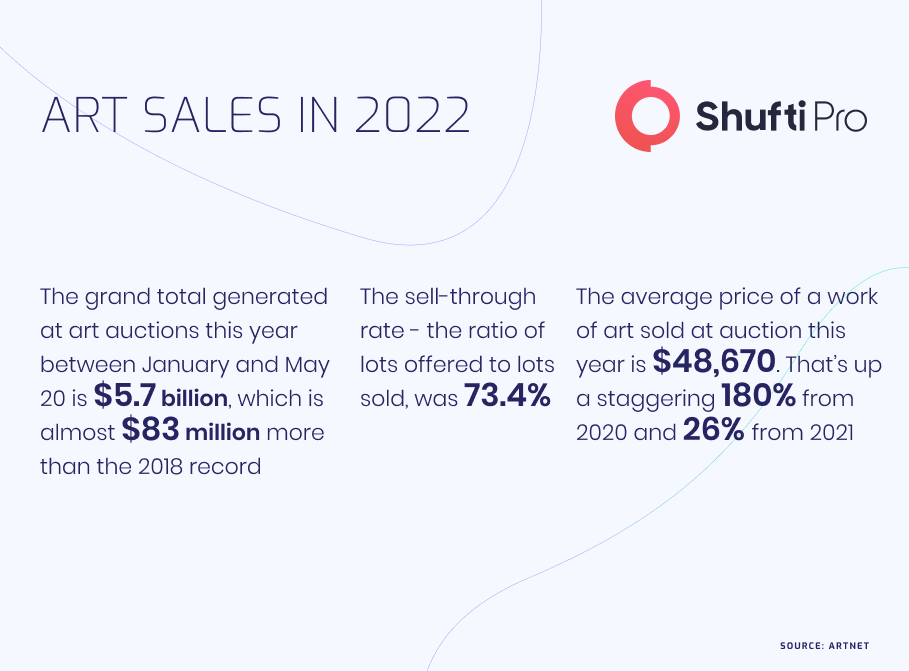An Insight into the US Regulations for the Art Art & Antiquities Sector

Billions of dollars worth of art and antiquities are traded throughout the world without checks to verify the sources of wealth used to make the expensive purchases. Neither the buyers nor the sellers have any idea about the background of the artwork or the entity purchasing it.
Unlike banks and other financial institutions, the art and antiquities sector does not require the filing of documents that regulatory authorities can use to track the transfer of money. In the art world, anonymity is associated with discretion, and even duplicate artworks are considered part of the tradition. The sector focuses more on convincing customers to make high-level purchases rather than annoying them with security checks.
Money Laundering in the Art World
“Secrecy, anonymity and a lack of regulation create an environment ripe for laundering money and evading sanctions,” the U.S. Senate’s Permanent Subcommittee on Investigations said in a report last July in support of increased scrutiny in the art industry. The issue of money laundering is so big in the art world that the lobbyists for art dealers in Washington have been pushing regulators to make the necessary changes in the upcoming policy. Artworks usually sell for amounts as large as 10 to 20 million US dollars, which is not far from the price tag on the luxury estates their owners live in. Although art dealers are supposed to pay a capital gains tax of 28 per cent on their profits, the IRS still faces the concern of tracking the accurate reporting of these taxes.
Regulations for the Art and Antiquities Market
As of yet, the United States has been relatively relaxed about regulations for the art and antiquities sector, especially from the Anti-Money Laundering (AML) viewpoint. In contrast, the UK and the EU have been regulating the “art market participants” (AMPs) since the start of 2020. Until recent times, the US has maintained the same stance for including only financial institutions under the AML regulations stated in the Bank Secrecy Act (BSA). That being said, the United States Financial Crimes Enforcement Network (FinCEN) has been working on variations in the BSA to apply the same rules to the art and antiquities market. These efforts come as a result of the surging financial crimes in the art and antiquities trade, and the potential for money laundering.
The ENABLERS Act
After the Pandora Papers revealed the use of offshore shell companies in money laundering, a group of US lawmakers introduced a new bill called the “Establishing New Authorities for Businesses Laundering and Enabling Risks to Security Act” (ENABLERS Act). The ENABLERS Act was introduced with the aim “to expand the scope and authorities of anti-money laundering safeguards” under the BSA. AML rules under the Bank Secrecy Act only apply to financial institutions, which is why the ENABLERS Act has been put in place to broaden the scope of the law to include a variety of professional intermediaries namely “gatekeeper professions”. These include attorneys and accountants that are involved in financial operations. The ENABLERS Act also includes art-related businesses under the definition of financial institution.
The ENABLERS Act’s exact wording for the art market entities proposed to be covered by the BSA is as follows: “a person engaged in the trade in works of art, antiques, or collectibles, including a dealer, advisor, consultant, custodian, gallery, auction house, museum, or any other person who engages as a business in the solicitation or the sale of works of art, antiques, or collectibles”.
The definition of the ENABLERS Act covers not only commercial art dealers but also collectors and museums. As per the draft, the ENABLERS Act does not allow any exemptions, but it is still too early to say what will actually be implemented.
The Biden administration has shown full support for the ENABLERS Act in its “United States Strategy on Countering Corruption”, which sheds light on the administration’s aims to address anti-corruption. The Pillar II of the strategy document, titled “Curbing Illicit Finance”, commits to “address deficiencies in the U.S. anti-money laundering regime”. It also refers expressly to the art and antiquities markets, noting that “the markets for art and antiquities—and the market participants who facilitate transactions—are especially vulnerable to a range of financial crimes”. It also refers to ongoing changes to the BSA in respect of the antiquities market.

The Bank Secrecy Act
The ENABLERS Act is not completely independent, which means the art market players that are brought under the scope of financial institutions by the ENABLERS Act will also be subject to the BSA’s anti-money laundering obligations like other financial institutions.
In simple terms, the requirements for “financial institutions” to comply with the Bank Secrecy Act are as follows:
- Financial institutions must report suspicious transactions immediately to the relevant authorities in case of a potential violation of the BSA rules
- Financial institutions, including art dealerships, must develop anti-money laundering regimes that include at least:
- Internal policies, procedures and controls
- An AML compliance officer
- Employee training programmes
- Independent audits to test AML programmes
- Financial institutions are also required to implement due diligence policies, procedures, and controls that are effective enough to detect and report instances of money laundering
- Art dealerships must also verify the identities of their customers, including background screening, maintaining identity records and checking lists of known or sanctioned individuals, PEPs (Politically Exposed Persons) and terrorist organisations before opening a new account.
It’s obvious that if these rules are implemented, they will significantly improve the art market’s stance toward financial crime. Businesses dealing in art and antiquities will be subject to substantial AML regulations. Penalties for failure to comply with the BSA vary as per the conditions but include forfeiture, monetary fines and imprisonment.
What Shufti Offers
Shufti’s robust AML Screening solution allows art dealers and businesses dealing with antiquities trading to verify the identities of their customers and ensure that dirty money is not being used for purchases. Powered by thousands of AI models, AML screening and ongoing transaction monitoring allow art dealerships to keep a check on every transaction, manage risk profiles and screen clients against 1700+ financial global watchlists in less than a second with 98.67% accuracy.
Want to learn more about AML screening for the art industry?

 Explore Now
Explore Now













